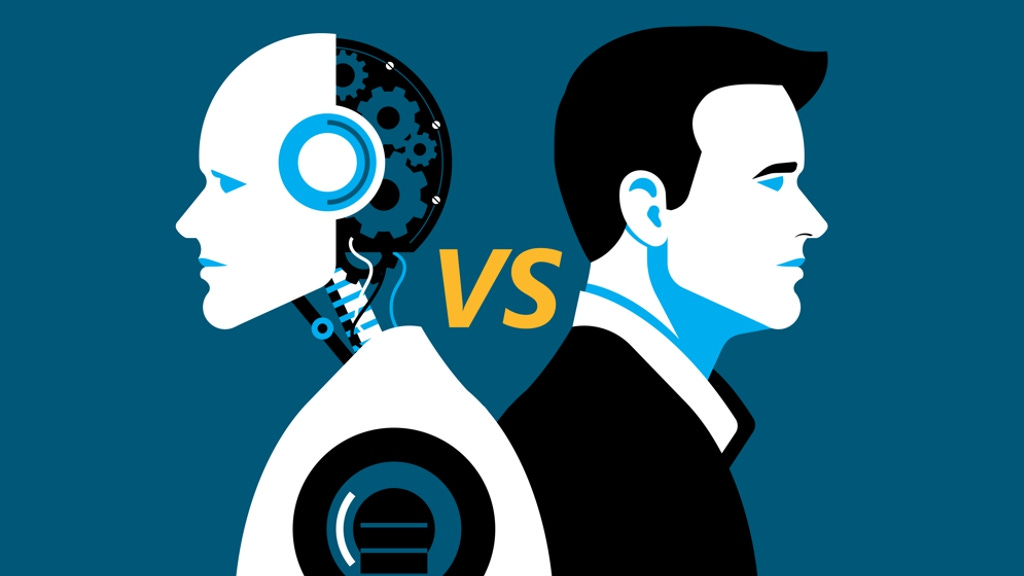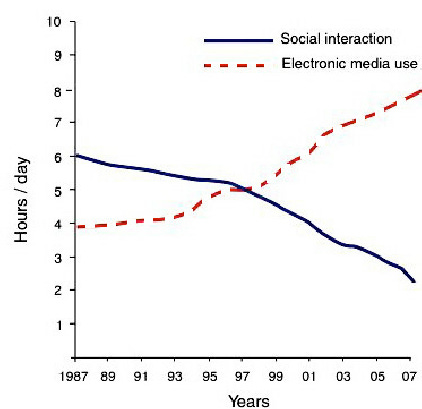Progress Paradox: Exploring the Price of Perfection in Technology
The Pursuit of Perfection: Navigating the Limits of Technological Advancement and Our Well-being
I. Introduction:
In the age defined by the relentless march of technology and software development, the speed of innovation has become both thrilling and challenging to keep up with. Many of us have witnessed transformative breakthroughs, from the evolution of computing power (who does not remember the SEGA days?) to the seamless integration of AI into our daily lives. Yet, amidst the excitement surrounding these advancements, a critical question looms large: When will the strides in technology no longer yield substantial benefits to our collective well-being as a human race?
My question is rather hypothetical: What is the threshold of technological advancement that can mark “enough” for our collective well-being? When our computers will be “enough-powerful” and mobile devices “enough smart”?
In simpler terms, at what point the gain from technological progress will lead to an ever-smaller increase in subjective value than it once had? In today's fast-paced world, we witness the exponential growth of computing and processing capabilities across various devices. The question arises – are we on the brink of saturating the capacities of our hardware and software? Much like any other aspect of the world, things tend to plateau, losing the once captivating charm and value. This inquiry invites us to pause and reflect on whether our relentless pursuit of improvement is genuinely propelling us toward a better future or steering us into realms where the gains become negligible.
Going beyond the surface allure of promised progression as a human race, exploring these questions challenges us to consider the broader implications of our quest for perfect technology. Could our relentless pursuit of ever-smarter devices inadvertently sacrifice crucial aspects of our humanity? What do we sacrifice when we collectively and discreetly agree that spending four hours staring at a screen brings value to our collective growth? Join me on this journey through the intersections of innovation and introspection as we navigate the uncharted territory of when technology, for all its wonders, may cease to be the catalyst for our societal and individual betterment.
II. The Diminishing Returns of Hardware and Software Enhancement
In the chronicles of technological history, we have witnessed a big stack of groundbreaking innovations that have profoundly and substantially shaped our existence. From the inception of personal computers to seamless communication facilitated by smartphones, these milestones have sent us into unparalleled conveniences and interconnectedness. But, during our fascination and admiration for these accomplishments, a critical point of view starts to emerge—Are these advancements truly revolutionizing our lives, or have we entered a realm where the incremental improvements bear only diminishing returns?
Take a reflection on the impact the personal computers had on us, it is a device that rearranged and reshaped how we work with information and redefined the way we communicate with each other. Fast forward to today, we find ourselves in an ocean of gadgets that are just so hungry for updates, each boasting faster processing power, better displays, and enhanced functionalities. However, as we navigated the landscape of these perpetual upgrades, an emerging question arises: Do these advancements genuinely revolutionize our lives or have we entered a domain where incremental improvements yield diminishing returns?
What do I mean by diminishing returns? To me, it is the concept when technological advancements offer only marginal enhancements over their predecessors (nothing impactful versus the previous one). It encourages us to think whether the updates and upgrades would be of such value that we need them to start with (sometimes, so many functions are of no use to users but made with investments of money, time, and resources). Does the relentless push for faster processors and more sophisticated algorithms truly translate into meaningful enhancements in our daily lives? Or have we just simply reached a stage where the gains are overshadowed by environmental consequences and a diminishing practical impact?
III. The Point of Saturation: When is Technology 'Smart' Enough?
Examining the evolution of smartphones and other device:
Embarking on a retrospective journey through the evolution of smartphones and mobile devices reveals a captivating narrative of innovation and progress. From the advent of the first mobile phone, which fundamentally transformed interpersonal communication, to the sleek and sophisticated smartphones of today, our devices have seamlessly integrated into the fabric of modern life. The inclusion of touch screens, AI capabilities, and high-quality cameras has elevated our phones beyond mere communication tools, turning them into powerful devices that grant us instant access to vast repositories of information.
However, as we trace this trajectory of advancement, another critical question emerges: Have we reached a stage where further enhancements of our smartphones and powerful computers are more about novelty than necessity? Who truly benefits from this relentless race to outdo one another in every conceivable aspect? Moreover, what might be the environmental repercussions of this ceaseless pursuit of manufacturing and feature enhancement for the myriad devices that surround us? These are questions that prompt us to reflect not only on the tangible benefits of technological progress but also on the potential drawbacks and the broader impact on our environment.
When the technology will reach a point of diminishing practical value:
In our sprint towards technological perfection, we inevitably hit a crossroads—a moment when our latest upgrade or enhancement is no longer a giant leap in practicality (I mean, how much difference does a 40-megapixel phone camera make compared to a 20-megapixel one on a tiny mobile screen?). This is where the law of diminishing returns kicks in, showcasing that each update, upgrade, or improvement yields only marginal benefits.
As a user, I find myself wondering when was the last time I had a truly remarkable experience with any of the gadgets I've used recently. It's all about a slightly louder speaker, a better camera, a clearer display screen, or a beefier battery capacity – nothing that's genuinely exceptional. Are we stuck in an endless loop of tiny tweaks that do little to redefine the way we interact with our tech? It's like we're caught in this perpetual cycle of minor changes that, honestly, don't shake things up all that much.
Considering the environmental impact of constant upgrades:
Let's not forget, that every time we get a cool new gadget, there's a less cool side to it – the whole production, use, and disposal deal. No matter how sleek or smart our devices are, they eventually become part of the electronic waste and carbon emission gang. We might not see it, but those tech graveyards exist, and they're not exactly eco-friendly.
Picture this: all those non-recyclable, non-degradable components just hanging out, taking up space. So, can we have our smart gadgets and be eco-warriors too? Can we balance the 'smart' chase with a commitment to keeping things sustainable? It's like trying to dance with two partners – tech coolness and green vibes. Tricky, but necessary for a future that doesn't leave us drowning in electronic waste.
IV. The Trade-Off: Technological Progress vs. Human Development
In our never-ending quest for the next big tech leap, it's crucial to shine a light on the potential trade-offs that come with progress. As devices become smarter, smaller, more portable, and even more wearable, it's worth pondering: What exactly are we giving up along the way?
One glaring trade-off we can all agree on is the rise of screen time. We find ourselves scrolling, swiping, and clicking more than ever before. Our immersion in the digital realm is impressive, but it comes at a cost – we risk losing touch with what's real, and ironically, the more digitally connected we become, the more socially distant we might feel.
Now, let's talk dollars and cents. The hefty investments directed toward refining hardware and software could arguably find more meaningful applications in crucial facets of human development. Mental health, for example, often takes a backseat in the tech race. Sure, we have meditation apps, but is that enough for our collective well-being?
Education is another arena of consideration. Are we channeling the right resources into shaping the minds of our kids, the next, and future generations? And what about societal infrastructure? While smart cities dominate discussions, should we be diverting more funds towards them at the expense of increased poverty, decreased healthcare, and less sustainable living, just for a futuristic cityscape?
As I point out these trade-offs, my intention isn't to advocate for rejecting technology. Instead, it's about striking a balance. As we charge forward into the future with a robust digital frontier, let's make sure we don't leave essential aspects of our humanity in the rearview mirror.
V. Societal Consequences: What Have We Lost in the Pursuit of Perfection?
In light of our discussion thus far, it's crucial to lay out on the table the societal costs tied to our pursuit of perfection. Like everything else, every advancement comes with a price, and in this case, I am not just talking about monetary costs.
Have you noticed that, with sharper mobile screens, faster processors, better internet, and more functional devices, our connections seem to be weakening by the day? The surge in digital interactions undoubtedly brings its perks, but it's easy to overlook the depth of our relationships beyond the click of a 'like' button. Texts and emojis may be replacing nuanced conversations with those we care about, potentially diluting the essence of human connection. As Sherry Turkle, an expert in the social impact of technology, aptly notes, "We're sacrificing conversation for mere connection."
With our sharper, more sophisticated, and smarter devices, we find ourselves bombarded with notifications that divert our attention from what truly matters. We're driven to enhance our digital personas to fit the mold of social media networks, taking a toll on our mental health. It's a Faustian bargain where the conveniences of technology come hand in hand with a mental toll.
Certainly, technology development has equipped our generations with valuable skills, but here's the argument: the positive impacts also come with negative effects on our skills. In the pursuit of efficiency and productivity, we might be stifling our creative capacities. The constant need for quick answers and solutions is undermining our ability to think outside the box. The access to unlimited information sources has also impacted our critical thinking abilities. As Nicholas Carr warns, "The internet is an interruption system. It seizes our attention only to scramble it."
The art of face-to-face communication, honed over millennia, is taking a hit as we rely more on digital interactions. When was the last time you didn't pick up your phone because "they need to text before calling"? A few years ago, people used to knock on doors unannounced and enjoy long summer nights around a fire.
I'm not demonizing technology in my argument about its social impacts but rather emphasizing the need for balance between progress and preservation. It's about recognizing potential losses, questioning the status quo, and ensuring that our pursuit of perfection doesn't come at the cost of the very essence of what makes us human.
VI. Rethinking Progress: A Call for a Holistic Approach
In our course to make such an amazing and beautiful tech leap, In my opinion, it’s the right time to recalibrate our compass and focus also on a more balanced course—one that not only embraces tech development, but also, human development too.
Beyond gadgets: there is a person behind every gadget we make, and there is a person behind every bit of improvement of that gadget. We need to expand our definition of progress. Just like how we measure the progress of a new app or a new product, we need to have firm definitions of how to measure real human progress.
Our well-being: Behind those gadgets and software. Well-being, health, education, and fair pay are important elements of our overall progress. And equal thought between technological advancements with enhancement of mental, emotional, and social well-being must be prioritized. As Yuval Noah Harari suggests, "The greatest scientific discovery was the discovery of ignorance. Once humans realized how little they knew about the world, they suddenly had a very good reason to seek new knowledge, which opened the scientific road to progress.”
Of course, while writing about the whole topic, I did some homework to understand some initiatives or examples of an effective balanced approach to harmonize both tech and human development, and I found a few interesting approaches
In Education: Finland’s education system showcases a departure from the traditional, exam-centric approach by focusing on fostering critical thinking, creativity, and inspirational skills. Finland has created an environment where human development stands side by side with technological integrations.
In Tech for Social Good: many startups and organizations redirect technological advancements towards more social good to face societal challenges, from apps promoting mental health awareness to platforms fostering community engagements, they all aim to bend technology to the service and goodness of our race.
In many other ways, we need to call for a holistic approach to progress as one. Progress is not an either/or scenario—it is an inclusive dance where tech and humanity come together.
VII. Conclusion
As I need to conclude this piece, although I still have more questions to raise and points to discuss in my mind, my general aim is to cast, with you of course, a gaze beyond pixels and algorithms. The boarded implications of tech progress on our well-being are real and we should bend that towards our prosperity as a race, not on the physical aspect only, but on the mental and psychological aspects too. The question remains, are we unintentionally sacrificing the very fabric of our societies on the altar of perpetual upgrade? I do not have a real answer but I have a strong belief that humankind will understand the value of balance collectively in one day.
In conclusion, let us embark on a collective introspection on the subject. What kind of future do we envision? Is it one where technological marvels coexist harmoniously with our values? Or one where the pursuit of perfection inadvertently eclipses the essence of what it means to be human?




I love the holistic approach in this article. From technology to education and more. Interesting insights.